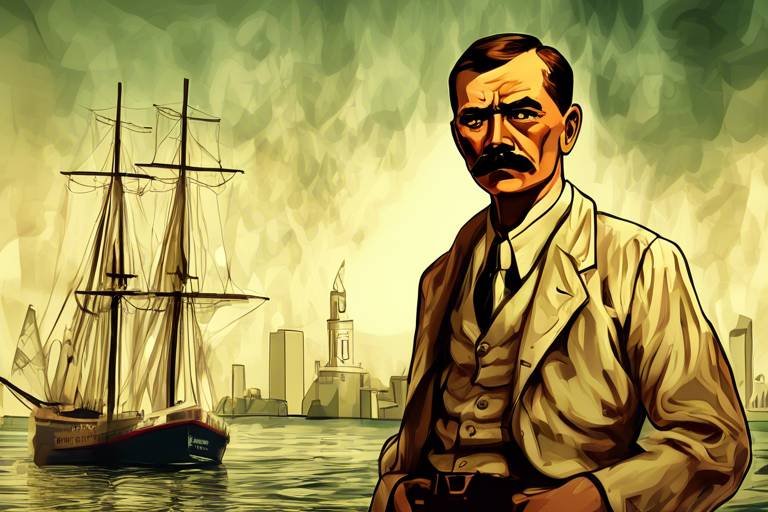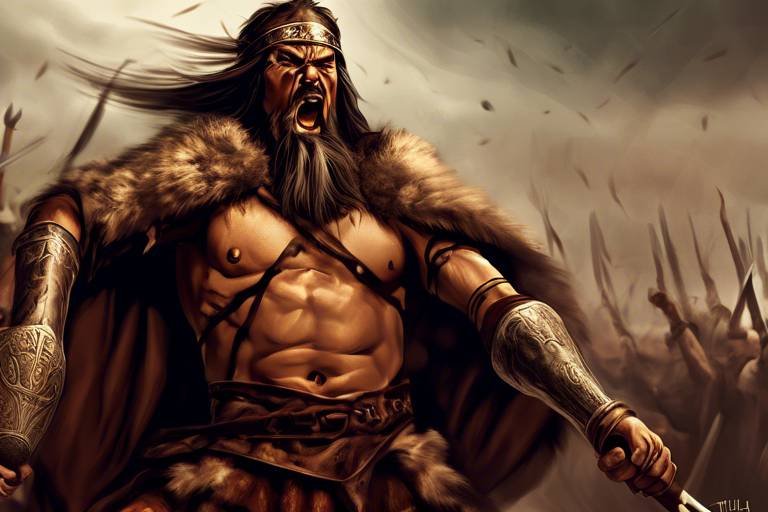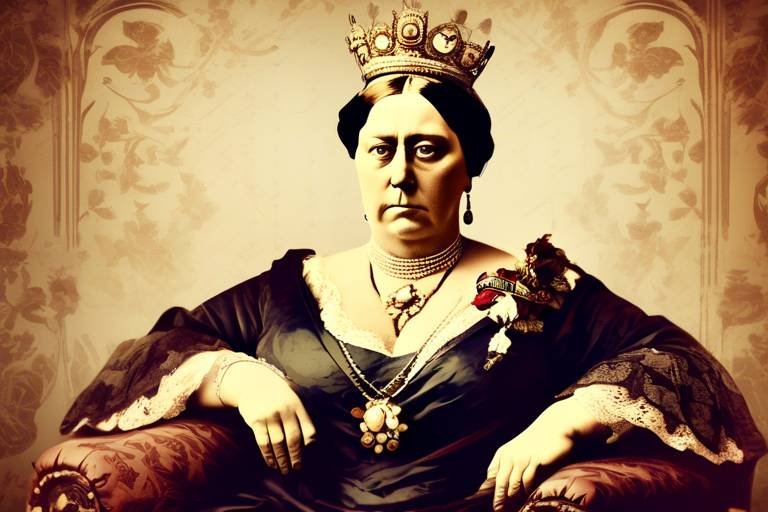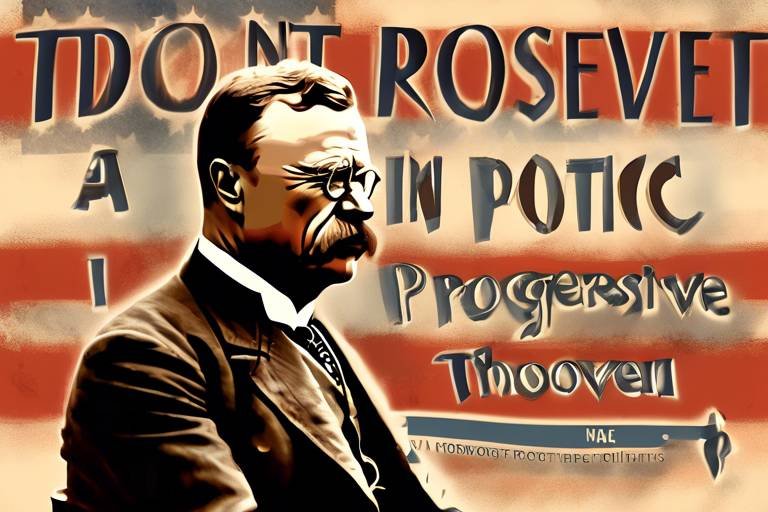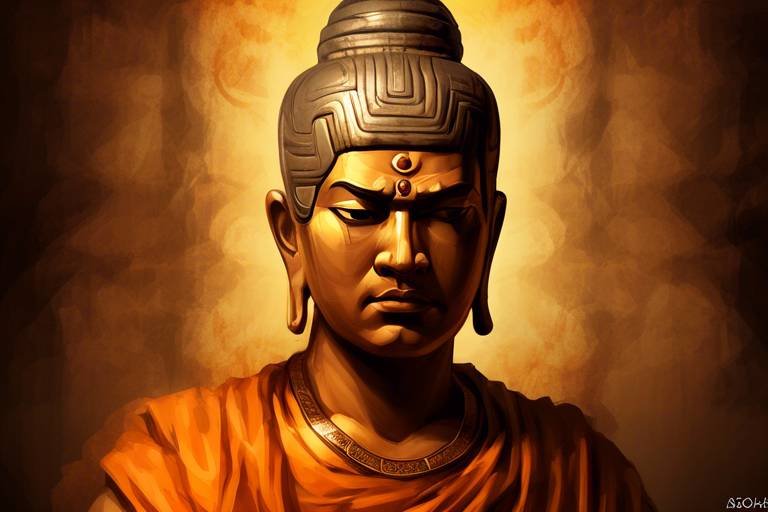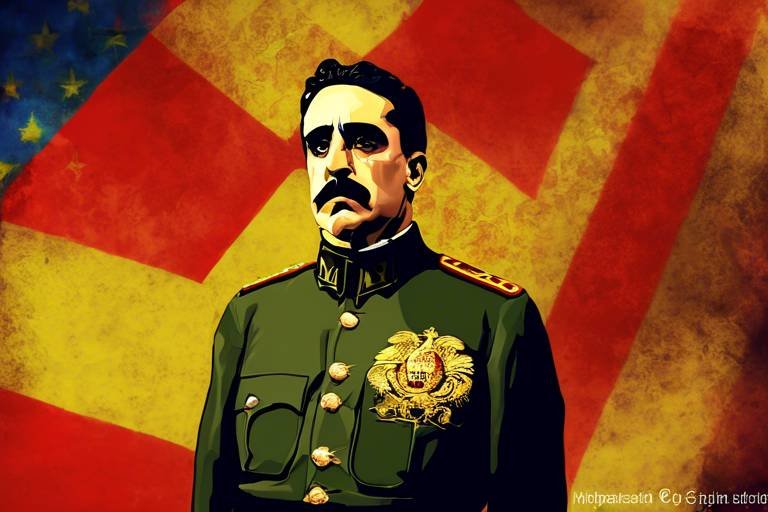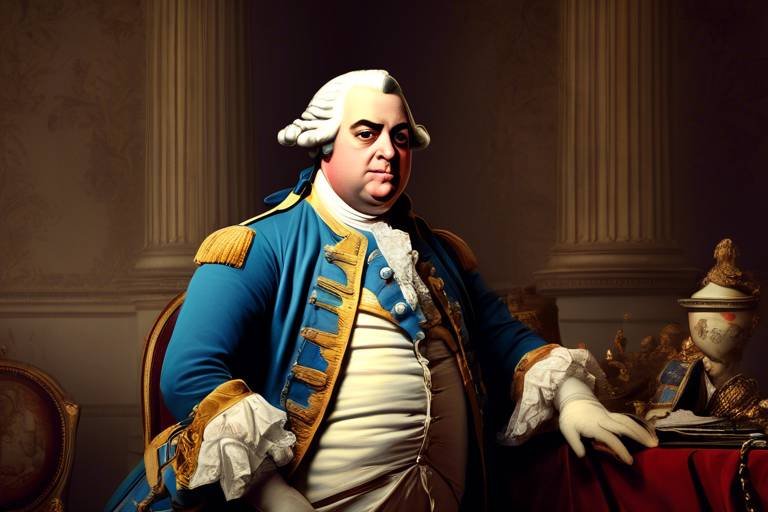Victoria: The Queen Who Ruled an Empire
Queen Victoria, a name synonymous with power, elegance, and influence, reigned over one of the most significant empires in history. Her rule marked a period of immense transformation and expansion for the British Empire, shaping the course of global politics and culture for generations to come.
Victoria ascended to the throne at a time when the world was on the brink of change. Her early life, marked by a strict upbringing and a thirst for knowledge, prepared her for the immense responsibilities that awaited her as the Queen of the United Kingdom. Despite her young age, Victoria embraced her role with determination and grace, earning the respect and admiration of her subjects.
One of the most enduring aspects of Queen Victoria's legacy is her partnership with Prince Albert. Their marriage was not just a union of hearts but also a collaboration in ruling the empire. Together, they navigated the complexities of governance, championed social causes, and set a standard of leadership that inspired future generations.
Under Queen Victoria's reign, the British Empire experienced unprecedented growth and expansion. The colonization of new territories, the spread of British influence across the globe, and the establishment of a vast imperial network were all hallmarks of Victoria's rule. Her ambition and vision transformed the British Empire into a global superpower, leaving a lasting impact on world history.
The Industrial Revolution brought about profound changes in Victorian society. The rapid industrialization, the emergence of the middle class, and the shift towards urban living reshaped the social fabric of the era. Queen Victoria's commitment to social reforms, including improvements in healthcare, education, and labor laws, reflected her concern for the well-being of her subjects.
The Victorian era was a time of great cultural flourishing. Literature, art, and architecture thrived under Queen Victoria's patronage, giving rise to timeless masterpieces that continue to captivate audiences today. The values and ideals of the Victorian era, characterized by a sense of duty, morality, and progress, continue to resonate in modern society.
Queen Victoria's Golden and Diamond Jubilees were grand celebrations that showcased the enduring loyalty of her subjects. These milestones in her reign were a testament to her enduring popularity and the deep affection that the people held for their queen. The jubilees were a time of festivity and reflection, honoring the remarkable achievements of Victoria's long and prosperous reign.
As Queen Victoria's reign came to an end, the world mourned the passing of an iconic monarch. Her death marked the end of an era in British history, closing a chapter of unparalleled influence and leadership. Queen Victoria's legacy as a ruler, a visionary, and a cultural icon endures to this day, shaping the course of history in ways that continue to inspire and fascinate.
In conclusion, Queen Victoria's reign stands as a testament to the power of leadership, the impact of cultural influence, and the enduring legacy of a remarkable woman who ruled an empire with grace and strength. Her story is one of triumph, tragedy, and transformation, leaving an indelible mark on the pages of history for all time.

Early Life and Ascension to the Throne
Queen Victoria, the iconic monarch who led the British Empire through a period of great change and expansion, left a lasting impact on history and culture. Her reign was marked by significant events and developments that shaped the world as we know it today.
Victoria's early life was far from ordinary. Born in 1819, she was raised in seclusion and received a strict education under the watchful eye of her mother and her mother's advisor, Sir John Conroy. Her father, the Duke of Kent, passed away when she was just a baby, leaving her next in line to the throne.
At the tender age of 18, Victoria ascended to the throne following the death of her uncle, King William IV. Her coronation in 1837 marked the beginning of a new era in British history, as the young queen embarked on her journey to rule an empire that spanned continents and seas.
Despite her youth and inexperience, Queen Victoria quickly proved herself to be a capable and determined leader. She navigated the complex world of politics and diplomacy with grace and skill, earning the respect and admiration of her subjects and foreign dignitaries alike.
Victoria's ascension to the throne was a turning point not only for the British Empire but also for the world at large. Her reign would come to symbolize an era of progress, innovation, and change, setting the stage for the modern world we live in today.
Throughout her life, Queen Victoria faced numerous challenges and obstacles, but she met each one with courage and resilience. Her early years and ascent to the throne laid the foundation for a reign that would leave an indelible mark on history and shape the course of the British Empire for generations to come.

Marriage to Prince Albert
Queen Victoria, a remarkable monarch who reigned over the British Empire during a period of immense change and expansion, left an indelible mark on history and culture. Her legacy continues to resonate to this day, shaping the world in profound ways.
One of the most enduring aspects of Queen Victoria's reign was her marriage to Prince Albert. Their union was not just a political alliance but a true love story that captivated the nation. Prince Albert played a pivotal role in supporting Queen Victoria in her duties as a monarch, and together they formed a formidable partnership that influenced Victorian society deeply.
The marriage of Queen Victoria and Prince Albert was not just a private affair but a public spectacle that set the tone for the Victorian era. Their relationship symbolized the values of family, duty, and tradition that characterized the time. Their partnership extended beyond the personal realm into the political sphere, with Prince Albert actively involved in matters of state and governance.
Prince Albert's influence on Queen Victoria was profound, shaping her views and decisions as a ruler. His progressive ideas and forward-thinking approach helped modernize the British monarchy and set the stage for social reforms that would define the era. Together, they navigated the complexities of royal life while striving to uphold the values they held dear.
Despite facing challenges and obstacles, Queen Victoria and Prince Albert remained devoted to each other, setting an example of enduring love and commitment. Their marriage was not without its trials, but their bond only grew stronger over time, becoming a source of inspiration for generations to come.
In the annals of history, the marriage of Queen Victoria and Prince Albert stands as a testament to the power of love and partnership in shaping the course of nations. Their legacy continues to be celebrated and remembered, a shining example of a royal union that transcended boundaries and left an indelible mark on the world.

Expansion of the British Empire
Queen Victoria, an iconic monarch, led the British Empire through a period of immense change and expansion, leaving an indelible mark on history and culture.
During Queen Victoria's reign, the British Empire experienced significant expansion, solidifying its status as a global superpower. The colonization of new territories under Victoria's rule reshaped the geopolitical landscape, with British influence spreading far and wide. The Empire's reach extended to distant lands, impacting economies, cultures, and societies across the globe. Through strategic alliances, military conquests, and diplomatic maneuvers, Queen Victoria oversaw the growth of the Empire to unprecedented levels, establishing Britain as a dominant force on the world stage.

Industrial Revolution and Social Changes
The Industrial Revolution marked a significant turning point in Victorian society, bringing about profound social changes that reshaped the fabric of daily life. With the advent of mechanization and mass production, traditional industries underwent a radical transformation, leading to the rise of factories and urban centers. The once agrarian society gave way to an industrial powerhouse, as steam engines and machinery revolutionized production processes.
As factories sprung up across the country, a new working class emerged, drawn to the urban centers in search of employment opportunities. The working conditions in these factories were often harsh, with long hours and meager wages, sparking debates on labor rights and worker protections. The plight of the working class became a focal point of social reform movements during Queen Victoria's reign.
The Industrial Revolution also brought about a shift in social hierarchies, as the middle class expanded and gained economic and political influence. The newfound wealth and social mobility of the middle class led to a redefinition of societal norms and values, challenging traditional aristocratic structures. The rise of the middle class paved the way for a burgeoning consumer culture, with a growing emphasis on material wealth and social status.
Amidst these social changes, Queen Victoria's reign saw the implementation of various social reforms aimed at improving the living and working conditions of the less privileged members of society. Acts such as the Factory Acts, which regulated working conditions in factories, and the Public Health Act, which addressed sanitation issues in urban areas, reflected a growing awareness of social inequalities and a commitment to enacting change.
The Industrial Revolution not only transformed the economic landscape of Victorian society but also catalyzed a wave of social reforms that sought to address the challenges brought about by rapid industrialization. Queen Victoria's era was marked by a delicate balance between progress and social justice, as the nation grappled with the complexities of a changing world.

Cultural Legacy and the Victorian Era
The Victorian era, named after Queen Victoria's reign, left a profound cultural legacy that continues to influence society to this day. It was a time of great innovation and artistic expression, shaping the values and aesthetics of the modern world.
One of the most notable aspects of the Victorian era was its impact on literature. Writers such as Charles Dickens, the Bronte sisters, and Oscar Wilde produced timeless works that captured the essence of the period. Their novels explored themes of social class, morality, and the human experience, resonating with readers then and now.
Art and architecture also flourished during the Victorian era, with a focus on intricate designs and elaborate decorations. The era saw the rise of Gothic Revival architecture, characterized by its ornate details and pointed arches. Artists like William Morris embraced the Arts and Crafts movement, emphasizing craftsmanship and traditional techniques.
Furthermore, the Victorian era was a time of significant scientific and technological advancements. The Industrial Revolution brought about rapid changes in society, leading to innovations in transportation, communication, and manufacturing. These developments laid the foundation for modern industry and shaped the world we live in today.
Victorian values, such as hard work, morality, and respectability, continue to influence contemporary culture. The emphasis on family, duty, and social order during Queen Victoria's reign has left a lasting impact on societal norms and expectations. The legacy of the Victorian era can be seen in the importance placed on tradition, etiquette, and personal responsibility.
In conclusion, the Victorian era under Queen Victoria's rule was a period of immense cultural richness and transformation. Its legacy lives on in literature, art, architecture, and societal values, serving as a testament to the enduring influence of one of history's most iconic monarchs.

Golden Jubilee and Diamond Jubilee
The Golden Jubilee and Diamond Jubilee of Queen Victoria were monumental events that celebrated her long and prosperous reign as the Queen of the United Kingdom and Empress of India. The Golden Jubilee, held in 1887, marked the 50th anniversary of Victoria's accession to the throne. It was a lavish affair that included parades, banquets, and festivities across the empire, demonstrating the loyalty and admiration of her subjects.
During the Golden Jubilee celebrations, Queen Victoria made a rare public appearance, riding in an open carriage through the streets of London to the cheers of the crowds. The event not only honored the Queen's dedication and service but also showcased the unity and strength of the British Empire under her rule.
Twenty years later, in 1897, the Diamond Jubilee commemorated Queen Victoria's remarkable 60 years on the throne. The Diamond Jubilee celebrations were even grander than the Golden Jubilee, with representatives from all corners of the empire converging in London to pay tribute to the iconic monarch.
One of the most memorable moments of the Diamond Jubilee was the procession through London, where Queen Victoria, now in her 80s, was met with overwhelming adoration from the public. The event highlighted the enduring popularity and significance of Queen Victoria, not just as a ruler but as a symbol of stability and continuity in a rapidly changing world.
The Golden Jubilee and Diamond Jubilee were not just royal events; they were reflections of the Victorian era's prosperity, power, and cultural achievements. These jubilees served as a testament to Queen Victoria's enduring legacy and the impact she had on the British Empire and the world at large.

Legacy and Historical Significance
Queen Victoria's legacy as a monarch is deeply intertwined with the history of the British Empire and the world at large. Her reign, which spanned over six decades, marked a period of significant change and expansion for the empire. Victoria's impact on the political and cultural landscape of the world cannot be overstated.
During her rule, the British Empire reached its zenith, becoming the largest empire in history. Victoria's policies and decisions shaped the course of history, influencing global politics and economics for years to come. The expansion of the empire under her reign had far-reaching consequences, both positive and negative, that continue to be felt today.
Victoria's personal influence on the monarchy and British society was equally profound. Her image as the "grandmother of Europe" due to her numerous royal descendants spread the influence of the British royal family across the continent. The stability and continuity she brought to the throne during a time of rapid change solidified the monarchy's place in British society.
Furthermore, Queen Victoria's reign coincided with a period of great cultural achievement known as the Victorian era. This era produced some of the most enduring works of literature, art, and architecture in history. The values and ideals of the Victorian era, including a strong sense of morality and duty, continue to shape modern society.
Victoria's death in 1901 marked the end of an era in British history. The period of mourning that followed, known as the "Victorian mourning period," reflected the deep respect and affection the British people held for their queen. Her passing symbolized the transition from the Victorian era to a new chapter in British history.
In conclusion, Queen Victoria's legacy and historical significance are undeniable. Her reign as the queen who ruled an empire left an indelible mark on the world, shaping the course of history and influencing generations to come.

Death and Mourning
Queen Victoria, the iconic monarch who led the British Empire through a period of great change and expansion, left a lasting impact on history and culture. Her reign was marked by significant events and developments that shaped the course of the British Empire and influenced global politics.
Queen Victoria's death marked the end of an era in British history and brought about a period of mourning that reverberated across the empire. Her passing on January 22, 1901, at Osborne House on the Isle of Wight, signaled the conclusion of a remarkable reign that spanned over six decades.
The news of Queen Victoria's death spread quickly, plunging the nation into mourning. The iconic queen, who had been a symbol of stability and continuity for so long, was now gone, leaving behind a legacy that would endure for generations to come.
As the nation grappled with the loss of their beloved monarch, preparations for her funeral began. Queen Victoria's funeral was a grand and solemn affair, befitting the stature of the queen who had ruled over the empire for so long. Her body was laid to rest at the Frogmore Mausoleum in Windsor, alongside her beloved husband, Prince Albert.
The period of mourning that followed Queen Victoria's death was a time of reflection and remembrance. The empire mourned the passing of a queen who had presided over an era of great change and progress. Her legacy as the "Grandmother of Europe" and the matriarch of numerous royal families endured long after her death.
Queen Victoria's death marked the end of the Victorian era, a time of prosperity, innovation, and cultural flourishing. The mourning period that followed served as a poignant reminder of the impact that one individual can have on the course of history and the hearts of a nation.
1. What was Queen Victoria's reign known for?
Queen Victoria's reign was known for its significant expansion of the British Empire, the industrial revolution, and the cultural achievements of the Victorian era.
2. How long did Queen Victoria rule?
Queen Victoria ruled for over 63 years, from 1837 until her death in 1901, making her the longest-reigning monarch in British history at that time.
3. What was Queen Victoria's legacy?
Queen Victoria's legacy includes her impact on the British Empire, the enduring influence of Victorian values, and her role as a symbol of stability and continuity during a period of rapid change.
4. How did the nation react to Queen Victoria's death?
The nation reacted with profound sadness and mourning to Queen Victoria's death, with her passing marking the end of an era and the beginning of a new chapter in British history.
Frequently Asked Questions
- 1. Was Queen Victoria the longest-reigning monarch in British history?
Yes, Queen Victoria held the title of the longest-reigning monarch in British history until Queen Elizabeth II surpassed her in 2015.
- 2. What was Queen Victoria's relationship with Prince Albert like?
Queen Victoria and Prince Albert shared a deep and loving partnership, with Prince Albert playing a significant role in advising and supporting the Queen in matters of state.
- 3. How did Queen Victoria influence the expansion of the British Empire?
Queen Victoria's reign saw significant territorial expansion of the British Empire through colonization and acquisition of new territories across the globe.
- 4. What were some of the key social reforms implemented during Queen Victoria's reign?
Queen Victoria's era witnessed the implementation of various social reforms, including labor laws, education reforms, and improvements in public health and sanitation.
- 5. What is the lasting cultural legacy of the Victorian era?
The Victorian era left a profound cultural legacy, shaping art, literature, architecture, and societal values that continue to influence modern culture.
- 6. How were Queen Victoria's Golden and Diamond Jubilees celebrated?
Queen Victoria's Golden and Diamond Jubilees were celebrated with grand ceremonies, parades, and festivities to mark the milestones of her long reign.
- 7. What impact did Queen Victoria have on the political landscape of the world?
Queen Victoria's reign had a significant impact on global politics, shaping alliances, colonial policies, and diplomatic relations during the 19th century.


